
Dresden, 10.12.2020
New Study Investigates Effect of Teplizumab on the Maintenance of Insulin Production in the Pancreas in Children and Adolescents Newly Diagnosed with Clinical Type 1 Diabetes
The antibody teplizumab can delay the development of clinical type 1 diabetes in individuals. There have been numerous studies evaluating the efficacy and safety of teplizumab in newly diagnosed clinical type 1 diabetes patients. . The effect of teplizumab in children and adolescents with newly diagnosed clinical type 1 diabetes is now to be investigated in the PROTECT study.
more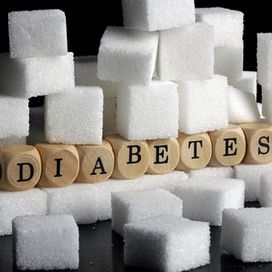
Düsseldorf, 07.12.2020
Sugar – More Than Just “Empty Calories”? New Study Provides Insights
Dr. Sabrina Schlesinger and her team at the German Diabetes Center have conducted a mediation analysis to specify the total association of sugar consumption on the development of type 2 diabetes. The results have now been published and provide insight into the association between daily sugar intake and diabetes prevalence.
more
Neuherberg, 09.11.2020
Knowledge about Diabetes Keeps You Healthy – Expansion of the National Diabetes Information Portal www.diabinfo.de Goes into the Second Round
A good six months after the launch of the national diabetes information portal www.diabinfo.de, many thousands of people are already using the scientifically based offering on diabetes and diabetes prevention every month. The portal has now been expanded to include additional content that will go live before World Diabetes Day on November 14, 2020: Essential content from the areas of diabetes prevention and living with diabetes is now also offered in Turkish. Thus, www.diabinfo.de provides new access to health-related information to one of the largest population groups with a migrant background in Germany. Offerings in other languages are in preparation.
more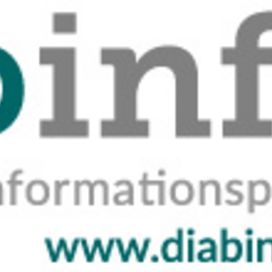
Neuherberg, Düsseldorf, Cologne, 05.11.2020
World Diabetes Day on November 14th: New Information Offerings on www.diabinfo.de
Around seven million people in Germany have diabetes mellitus. In 2040, up to 12 million people could be affected by type 2 diabetes. The disease usually develops insidiously and can remain completely symptom-free for years. It is all the more important to inform the population about the risks and the preventive potential. The independent diabetes information portal www.diabinfo.de, initiated by the Federal Centre for Health Education (BZgA), offers quality-assured and scientifically sound information about the prevention of the disease and about living with diabetes – and now also in Turkish. Offerings in other languages are in preparation.
more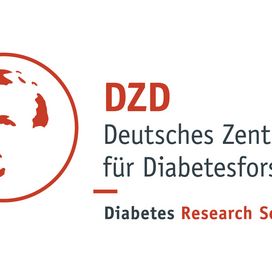
Neuherberg, 03.11.2020
Virtual DZD Diabetes Research School (DRS): International Diabetes Experts in Online Lecture Series for Talented Young Researchers
More than 100 young diabetes researchers from all over the world took part in the virtual DZD Diabetes Research School (DRS) this autumn. In the online lecture series of the German Center for Diabetes Research (DZD), six international experts gave an overview of current research topics: from stem cell research in connection with genetically caused diabetes to immune therapies that could revolutionize the prevention and early treatment of type 1 diabetes.
more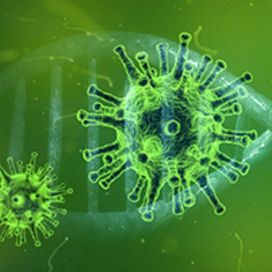
Neuherberg, 29.10.2020
More infections than reported: New study demonstrates importance of large-scale SARS-CoV-2 antibody screenings
A new study lead by Helmholtz Zentrum München indicates a six-fold higher SARS-CoV-2 exposure rate among children in Bavaria, Germany, than reported cases. This highlights the value of population-based antibody screenings for pandemic monitoring. The study also describes a novel approach to measuring antibodies against SARS-CoV-2 with high accuracy.
more
Düsseldorf, 26.10.2020
SMS Initiative Receives Award for Special Commitment
The SMS initiative was awarded 2nd prize in the Charity Awards 2020 sponsored by Springer Medizin. With the Charity Award, Springer Medizin honors foundations, organizations and institutions that show outstanding social commitment to healthcare in Germany. This year's digital presentation of the Charity Award took place on October 22, 2020 as part of the Springer Medizin Gala 2020. The award winners were selected by an independent jury of experts on the basis of the criteria of social commitment, sustainability, role model effect and social relevance. The patron of the Springer Medizin Charity Award is the Federal Minister of Health Jens Spahn.
more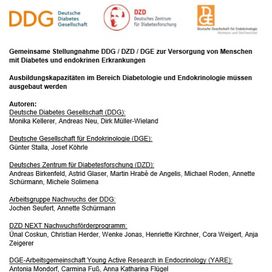
Berlin/Neuherberg, 29.09.2020
Experts from the Fields of Diabetology and Endocrinology Call for More Capacities in Training and Continuing Education
On July 3, 2020, the German Bundestag adopted the National Diabetes Strategy with the aim of achieving a lasting improvement in patient care and expanding translational research. To achieve this, first of all the personnel resources that have been lost over decades must be re-established, and innovative learning content in medical studies must be created. In a joint position paper, the German Diabetes Association (DDG), the German Society of Endocrinology (DGE), and the German Center for Diabetes Research (DZD) call on political decision-makers to, in particular, expand training and continuing education capacities in diabetology and endocrinology. This is an essential basis for the successful implementation of the political objectives adopted in the summer.
more
Cologne/Neuherberg, 23.09.2020
DZD Researchers Honored at EASD Annual Meeting
Two researchers of the German Center for Diabetes Research (DZD) have been honored at the virtual Annual Meeting of the European Association for the Study of Diabetes (EASD). Professor Jens Brüning has received the EASD / Novo Nordisk Foundation Diabetes Prize for Excellence. A Future Leaders Award from the European Foundation for the Study of Diabetes (ESFD) / Novo Nordisk Foundation went to Dr. Natalie Kramer.
more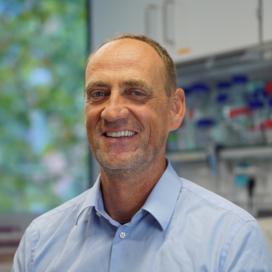
Berlin/Cologne, 18.09.2020
HOW OUR BRAIN CONTROLS FOOD INTAKE
The Schering Stiftung honours Jens Claus Brüning with the Ernst Schering Prize 2020. The physician and metabolism researcher receives the prize for his research work on identifying pathological processes in the development of insulin resistance in obesity and diabetes mellitus.
more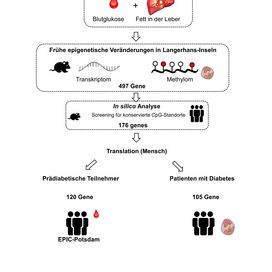
Potsdame-Rehbrücke, 10.09.2020
Epigenetic Changes Precede Onset of Diabetes
Epigenetic* changes in the islets of Langerhans of the pancreas can be detected in patients several years before the diagnosis of type 2 diabetes (T2D). These changes are responsible for the altered methylation activity of specific genes which differs from that in healthy individuals. In humans, 105 such changes have been discovered in blood cells. This was shown in a study by researchers from the DZD/DIfE, which has now been published in the journal ‘Diabetes’. These findings could help to develop diagnostic markers for type 2 diabetes.
more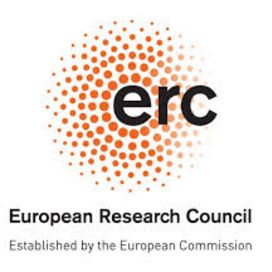
Neuherberg, 07.09.2020
New ERC Starting Grants for pioneering health research at Helmholtz Zentrum München
Helmholtz Zentrum München is awarded four ERC Starting Grants in the latest funding round of the European Research Council (ERC). All shortlisted projects submitted by early career researchers were successful, marking a novel record for the center. The winners aim to promote a healthier society and accelerate the development of personalized medicine solutions in the fields of lung, metabolism, cancer and allergies.
more
Ulm, 04.09.2020
Effect of Corona Lockdown on Type 1 Diabetes Incidence in Children and Adolescents Investigated
How did the incidence rate develop during the lockdown with regard to stress factors on the one hand but generally less potential exposure to various viral infections on the other? This was investigated by a Germany-wide research group led by DZD scientist Prof. Dr. Reinhard Holl of the University of Ulm. The results of the research team, which were published in the journal Diabetes Care, showed no significant increase in incidence between mid-March and mid-May 2020.
more
Düsseldorf, 25.08.2020
Website of the SMS Initiative Shines in New Design
The SMS initiative has launched a completely redesigned website with interactive elements: An increasing number of children are at heightened risk of developing lifestyle-related diseases such as obesity and type 2 diabetes due to poor eating habits and lack of exercise. In view of this, the initiative "SMS. Be smart. Join in. Be fit.“ promotes the development of a healthy lifestyle and long-term prevention of these diseases through targeted measures already in early childhood.
more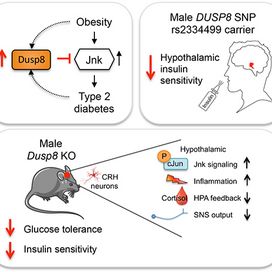
Neuherberg, 21.08.2020
A Gatekeeper Against Insulin Resistance in the Brain
The brain plays a major role in controlling our blood glucose levels. In type 2 diabetics this glucose metabolism brain control is often dysfunctional. Genetic components for this phenomenon have so far remained elusive. A group of scientists at Helmholtz Zentrum München and the German Center for Diabetes Research (DZD) have now shown in the ‘Journal of Clinical Investigations’ that in men a genetic variant of the gene DUSP8 can increase the risk for type 2 diabetes by impairing our brain response to the hormone insulin.
more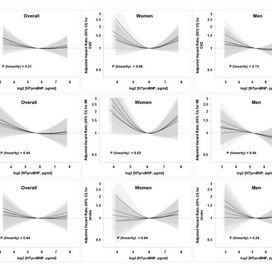
Potsdam-Rehbrücke, 18.08.2020
Risk of Diabetes Complications Increases with Elevated Levels of NT-proBNP
Healthy people – especially women – with elevated levels of the heart failure marker NT-proBNP have a lower risk of developing type 2 diabetes. However, if these people develop diabetes nonetheless, they are more likely to suffer from macro- and microvascular complications such as heart attack, stroke, or severe damage to eyes, kidneys, or nerves. These are the findings of a recent study by DZD researchers that has now been published in 'Diabetes Care'.
more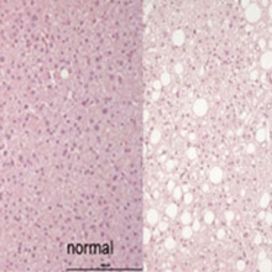
Potsdam-Rehbrücke, 09.08.2020
How Protein Protects against Fatty Liver
Non-alcoholic fatty liver disease is the most common chronic liver disease in the world, with sometimes life-threatening consequences. A high-protein, calorie-reduced diet can cause the harmful liver fat to melt away – more effectively than a low-protein diet. A new study by DIfE/DZD researchers published in the journal 'Liver International' shows which molecular and physiological processes are potentially involved.
more
Ulm, 21.07.2020
Increase in Ketoacidosis in Children and Adolescents during the Corona Crisis
What impact was observed on the number of cases of ketoacidosis in young people with newly diagnosed diabetes during the first two months of the COVID 19 pandemic in Germany? DZD scientist Prof. Dr. Reinhard Holl from the University of Ulm and a team of researchers from all over Germany investigated this question. The results have now been published in the scientific journal JAMA. The background to the investigation was the general decrease in the number of visits to doctors, which potentially led to delayed medical diagnoses.
more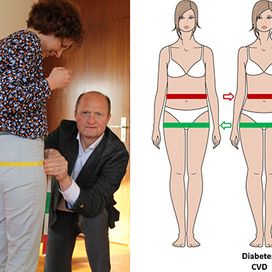
Tübingen, 22.06.2020
Why and to what Extent a Large Hip Protects from Type 2 Diabetes and Cardiovascular Diseases
In a ‘Lancet Diabetes & Endocrinology’ article Norbert Stefan from the German Center for Diabetes Research (DZD), the University Hospital of Tübingen and the Boston Children’s Hospital, highlights why and to what extent a large hip circumference, an estimate of increased fat mass in the lower part of the body, protects from type 2 diabetes and cardiovascular diseases (CVD). He also provides new information that a high amount of hip and leg fat mass is very important to retain metabolic health. In addition, he discusses lifestyle modifications and pharmacological interventions that improve body fat distribution and exemplifies how a focus on lower body fat mass helps clinicians in risk assessment and patient communication.
more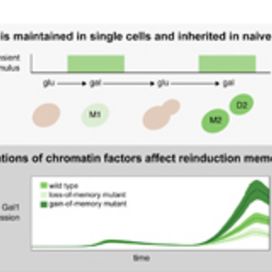
Neuherberg, 08.06.2020
Cells pass on metabolic transcriptional memory to their progeny
The capacity to remember is essential for all organisms. “Transcriptional memory” enables cells to adapt to changing environments such as food availability. But how do cells pass on memories to their progeny? A team of researchers, with Dr. Poonam Bheda and Prof. Robert Schneider from the Institute of Functional Epigenetics (IFE) at the Helmholtz Zentrum München, focused on this question and published their recent findings in 'Molecular Cell'.
more
Neuherberg, 25.05.2020
DZD Researchers Honored for Outstanding Work in Diabetes Research
The German Diabetes Association (DDG) is honoring several researchers of the German Center for Diabetes Research (DZD) with awards for their outstanding research work and their longstanding dedication. Furthermore, the DDG is supporting research projects from the DZD.
more
Düsseldorf, 25.05.2020
Inspiring Children to Lead an Active Lifestyle
Elementary school students in Düsseldorf are encouraged to lead an active lifestyle within the framework of the SMS initiative "SMS. Be smart. Join in. Be fit.". The active card game "Move with PFIFF" for project schools is also available at Düsseldorf city libraries.
more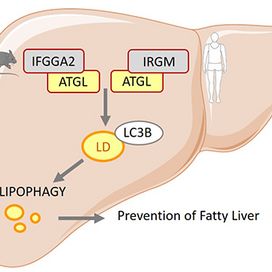
Potsdam-Rehbrücke, 18.05.2020
Additional Genetic Cause for Non-alcoholic Fatty Liver Disease Discovered
In Germany about 18 million people suffer from non-alcoholic fatty liver. The causes of this disease are manifold and include environmental as well as genetic factors. DZD researchers have now discovered new genes that play a role in the development of fatty liver. In humans and mice, respectively, the genes IRGM, Ifgga2 and Ifgga4 are responsible for the production of regulatory proteins of the family of immunity-related GTPases which counteract fat accumulation in the liver. However, a genetic variation leads to the formation of fewer of these proteins. The results have now been published in the 'Journal of Hepatology'.
more
Neuherberg, 14.05.2020
Fighting the COVID-19 Pandemic and Major Diseases at the Same Time: A Balancing Act for Biomedical Scientists
Researchers, politicians and funding bodies find themselves in front of a unique situation and enormous challenge: The mounting pressure to accelerate and intensify efforts to tackle the COVID-19 pandemic while handling the growing threat from all other diseases endangering our society. This balancing and how well the scientific community will respond to it will define health across the globe for years to come, argue scientists at Helmholtz Zentrum München and Deutsches Krebsforschungszentrum (DKFZ) in the latest issue of the leading journal 'Cell'. In their commentary, the researchers discuss how to strike a good balance between maintaining and redefining research priorities.
more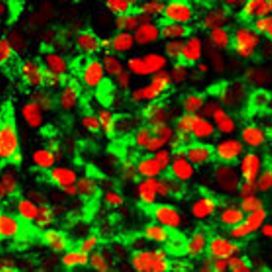
Neuherberg, 27.04.2020
Beta Cells from Stem Cells: Potential for Cell Replacement Therapy
The loss of insulin-secreting beta cells by autoimmune destruction leads to type 1 diabetes. Clinical islet cell transplantation has the potential to cure diabetes, but donor pancreases are rare. In a new study, a group of researchers developed an improved pluripotent stem cell differentiation protocol to generate beta cells in vitro with superior glucose response and insulin secretion. This is a major step towards beta cell replacement therapy.
more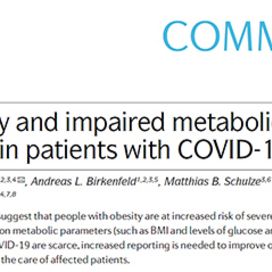
Tübingen, 24.04.2020
Summary of preliminary Data about Obesity and Severity of COVID-19
In a Nature Reviews Endocrinology “Comment” authors from the German Center for Diabetes Research (DZD), the Boston Children’s Hospital and the Harvard T.H. Chan School of Public Health call for more research about the relationships of obesity, disproportionate fat distribution and impaired metabolic health with the severity of COVID-19.
more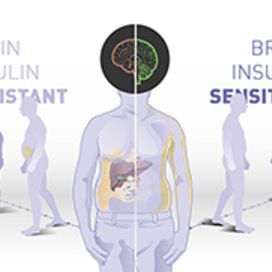
Tübingen, 24.04.2020
Brain Insulin Sensitivity Determines Body Weight and Fat Distribution
Just where fat is deposited in the body and to what degree a person may benefit from a lifestyle intervention depends, among other things, on how sensitive the brain is to insulin. If the person’s brain responds sensitively to the hormone, a significant amount of weight can be lost, unhealthy visceral fat reduced, and the weight loss can be maintained over the long term. However, If the person’s brain responds only slightly or not at all to insulin, the person only loses some weight at the beginning of the intervention and then experiences weight regain. Over the long term, the visceral fat also increases. These are the results of a long-term study by the German Center for Diabetes Research (DZD), Helmholtz Zentrum München and Tübingen University Hospital which has now been published in 'Nature Communications'.
more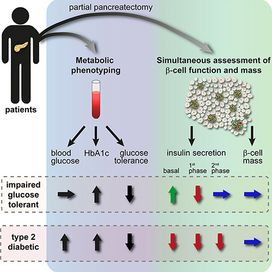
Dresden, 07.04.2020
Mass or function - PLID scientists provide new puzzle piece for the controversial debate on early type-2 diabetes pathogenesis
Type-2 diabetes (T2D) is characterized by peripheral insulin resistance and insufficient insulin release from pancreatic islet beta cells. However, it is still unclear if the inadequate insulin levels during T2D development are the result of beta cell dysfunction and/or loss of beta cell numbers. Under the lead of Prof. Stephan Speier a collaborative research project involving researchers from the Paul Langerhans Institute Dresden at the Helmholtz Zentrum München and Faculty of Medicine Carl Gustav Carus of TU Dresden, the University Clinic Dresden and King’s College London has now added a critical piece to this controversial debate, by utilizing a novel platform to study the human pancreas in T2D pathogenesis. This unique approach revealed that beta cell function deteriorates early in T2D pathogenesis while beta cell mass in the studied tissue persists. The results of this collaborative work have now been published in ‘Cell Reports’.
more
Tübingen, 05.03.2020
A Novel Cause of Fatty Liver in Lean People
Nonalcoholic fatty liver disease (NAFLD) is mostly diagnosed in overweight and obese people. However, severe forms of NAFLD can also be detected in rare genetic diseases such as lipodystrophy or in patients with HIV, putting them at a high risk for developing liver failure, diabetes and cardiovascular diseases. Norbert Stefan and colleagues of the University Hospital of Tübingen have now detected a yet unknown cause of NAFLD in lean people. They report a case of a woman who received immune checkpoint blockade therapy for skin cancer, which may have triggered inflammation of her subcutaneous fat, resulting in a dramatic loss of fat mass and severe NAFLD.
more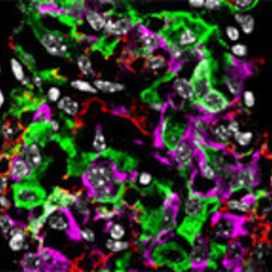
Neuherberg, 20.02.2020
New drug combination restores beta cell function in animal model: potential for diabetes remission
The loss of the identity of insulin-secreting beta cells in the islet of Langerhans, a process also called beta cell dedifferentiation, has been proposed to be a main reason for the development of diabetes. If and how dedifferentiated beta cells can be targeted by pharmacological intervention for beta cell regeneration is unknown. In a new study in mice, Helmholtz Zentrum München in collaboration with Novo Nordisk, demonstrated for the first time that a targeted combinatorial drug treatment is able to restore beta cell function, achieve beta cell redifferentiation and therefore potentially open new ways for diabetes remission.
more
Neuherberg, 13.02.2020
National Diabetes Information Portal www.diabinfo.de: New website on diabetes mellitus is now online
What can I do if I have diabetes mellitus? How can I protect myself against type 2 diabetes? The new national diabetes information portal www.diabinfo.de – a quality-tested and independent website about the disease group diabetes mellitus – provides information in German about the causes and risk factors of the various forms of diabetes and about effective prevention of the disease. Upon the initiative of the Federal Centre for Health Education (BZgA), the new information portal was created by the leading centers of diabetes research in Germany – Helmholtz Zentrum München, the German Diabetes Center (DDZ) and the German Center for Diabetes Research (DZD).
more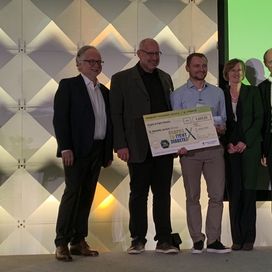
Neuherberg, 24.01.2020
DZDconnect Honored: Dr. Alexander Jarasch Receives bytes4diabetes Award
The DZDconnect project “Graphs to Fight Diabetes“ of the German Center for Diabetes Research (DZD) has won a bytes4diabetes Award 2020. The award was presented to Dr. Alexander Jarasch, head of Bioinformatics and Data Management in the DZD, at the DiaTec 2020, a training event for Diabetes Technology & Digitalization, on January 23rd in Berlin. Dr. Jarasch will present the project on January 24th and 25th within the framework of DiaTec 2020 in Berlin.
more
